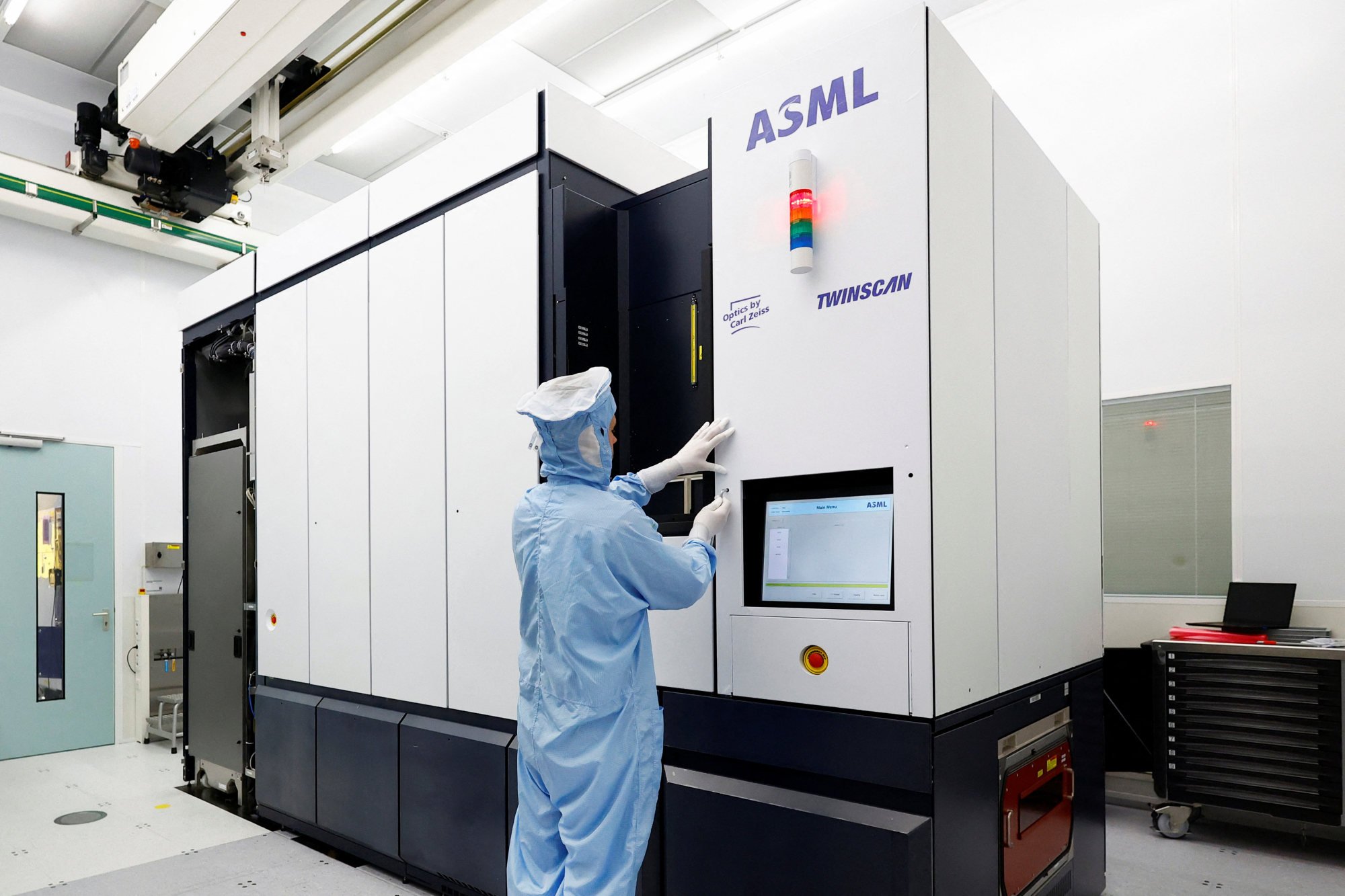Nvidia was already the world’s most valuable semiconductor firm. Now, it has become the first computer-chip company ever to hit US$3 trillion in market capitalisation.
Shares of the Santa Clara, California-based firm have risen roughly 147 per cent this year, adding about US$1.8 trillion as the insatiable demand for its chips used to power artificial intelligence (AI) tasks skyrockets.
On Wednesday, shares rose 5.2 per cent to close at a record US$1,224.40, pushing the market value to more than US$3 trillion and overtaking Apple in the process.
The last time Nvidia was worth more than Apple was in 2002, five years before the first iPhone was released. At the time, both companies were worth less than US$10 billion each.
The rise of generative AI is a new industrial revolution and Nvidia expects to play a major role as the technology shifts to personal computers, Huang told attendees at a keynote address at National Taiwan University.
“We see this sea change as in the very early innings,” said Angelo Zino, senior equity analyst at CFRA Research.
After the CEO’s keynote, Zino said he likes “the improved visibility” and sees “greater momentum on the GPU/CPU/networking side driving upside to consensus estimates.”
The company has been arguably the biggest beneficiary of a massive flood of AI spending, helping vault the company into a race to claim the title as the world’s most valuable company. The chip designer still trails Microsoft by market value, but with shares on a tear Wall Street sees it as only a matter of time before Nvidia overtakes it.
Over in Europe, ASML Holding became the continent’s second-biggest listed company, overtaking LVMH by market value for the first time ever.
The shares jumped 8.1 per cent on Wednesday, valuing the company that produces equipment needed to make the most sophisticated semiconductors at about €377 billion (US$410 billion). That was some €641 million more than luxury conglomerate LVMH. In European markets, only healthcare giant Novo Nordisk is worth more.

For ASML investors, it offered reassurance about future sales as TSMC has previously raised concerns about the machine’s pricing. The stock had pulled back since April after first-quarter results showed that top chip makers held off buying high-end equipment.
“Significant orders are expected in coming quarters,” said Jefferies analyst Janardan Menon, who rated the stock as buy. TSMC is set to ramp up production for next-generation 2-nanometer chips in the second half of 2025, but ASML has not received major bookings so far, he added.

